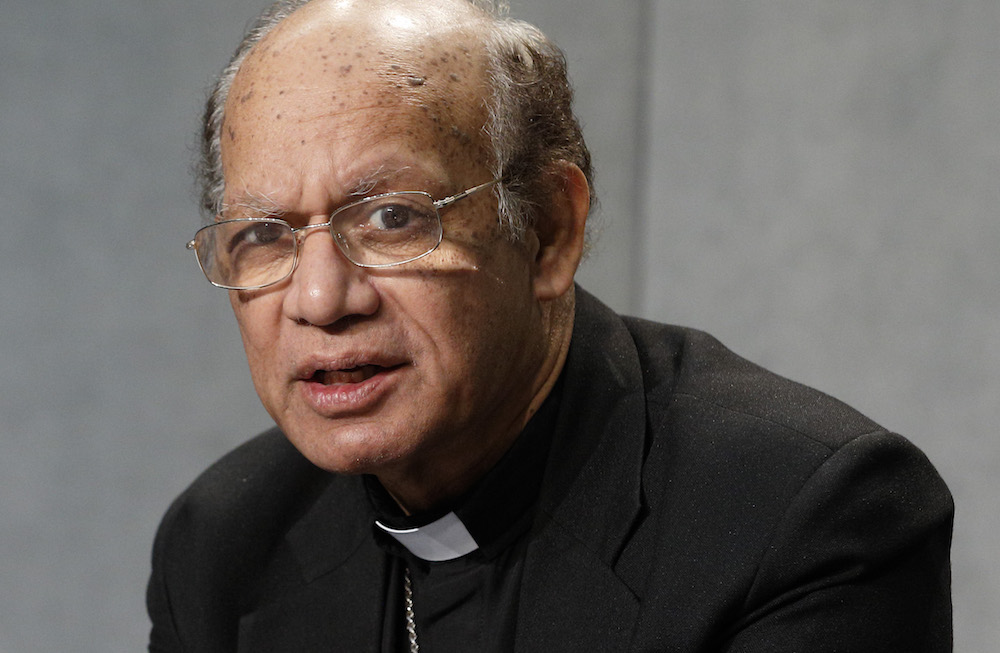After a brief shout-out for the “communal and fraternal” atmosphere within the summit of bishops, speakers at a press briefing in the Vatican on Tuesday acknowledged that sexuality, the abuse crisis and the role of women in the Church are burning topics for many young people today.
“Young people have been intervening during the meetings, challenging the Church,” said Cardinal Oswald Gracias of Bombay, India, president of the Indian episcopal conference, adding that he has “a renewed sense of hope for the Church after this meeting.”
Bishops from around the world have convened at the Vatican this month to discuss the topics of young people, faith and discernment, just as clerical sexual abuse and coverup scandals have mined the credibility of the Church worldwide.
“I’m really confident, I’m not saying because I have to say it, very confident in the future of the youth apostolate around the world,” Gracias said.
On Oct. 9, bishops began work on the working material, which includes the result of a questionnaire for youth, a document created during a pre-synod gathering of young people with insights from dioceses and episcopal conferences around the globe.
“Young people have been making their voice heard at the synod of bishops,” said Cardinal Gérald Cyprien Lacroix of Québec, Canada, a member of the Commission for Information, during the press event Oct. 9.
He noted the “climate of serenity” that he perceives within the summit and the willingness to follow the “indication by Pope Francis to live the experience of the synod as a common discernment.”
Speakers at the press event highlighted the varying array of concerns and hopes that young people have expressed with regards to the catholic Church, from immigration to family, from liturgy to the need to speak the language of young people - especially the Internet and social media. But they also admitted that the sex abuse crisis and the need for further inclusivity in the Church were not ignored.
“While there are many other important themes,” Lacroix said, “we have not shied away from talking about [sex abuse],” adding that young people have appealed for “a more coherent life” not just by clergy but by all baptized people.
“We need to offer a better formation but especially for the clergy, religious communities, movements and groups on the body, fertility but especially sexuality,” the Canadian cardinal added. “We have to do a better job at that. This will be part of important steps that we are already seeing being part of the proposals.”
He also emphasized the importance of providing greater platforms for women within the Church. Gracias also noted that this was among the main concerns in his language group, the need to allow women “not just cosmetic changes but also roles of responsibility and decision making in the Church.”
“I don’t think we have come to the end point,” Gracias said. “We must search for more roles for women, also in terms of responsibility.”
rn
“Young women want a Church with a double face, male and female,” Becquart said. “Many girls say it’s difficult for them to imagine what could be a place for them.”
The synod, she added, provides a place for discernment and dialogue where the Church can assess it’s own fragility before the many challenges posed by our modern times.
“The Church does not want to be defensive,” Gracias said. “The youth want an authentic Church, we all want an authentic Church and we look forward to making the church even more authentic.”
“If there have been policy failures or system failures, they have to be rectified certainly with courage, with confidence and also with honesty,” the Indian cardinal added.
“We must not be afraid to listen to young people,” said Cardinal Désiré Tsarahazana, archbishop of Toamasina, Madagascar, calling the world to conversion due to “the cancerous effects” of poverty and corruption.
Tsarahazana also said that Pope Francis has been invited to visit Madagascar next year and Vatican spokesmen Greg Burke confirmed that discussions are well on their way to make the papal trip happen.

